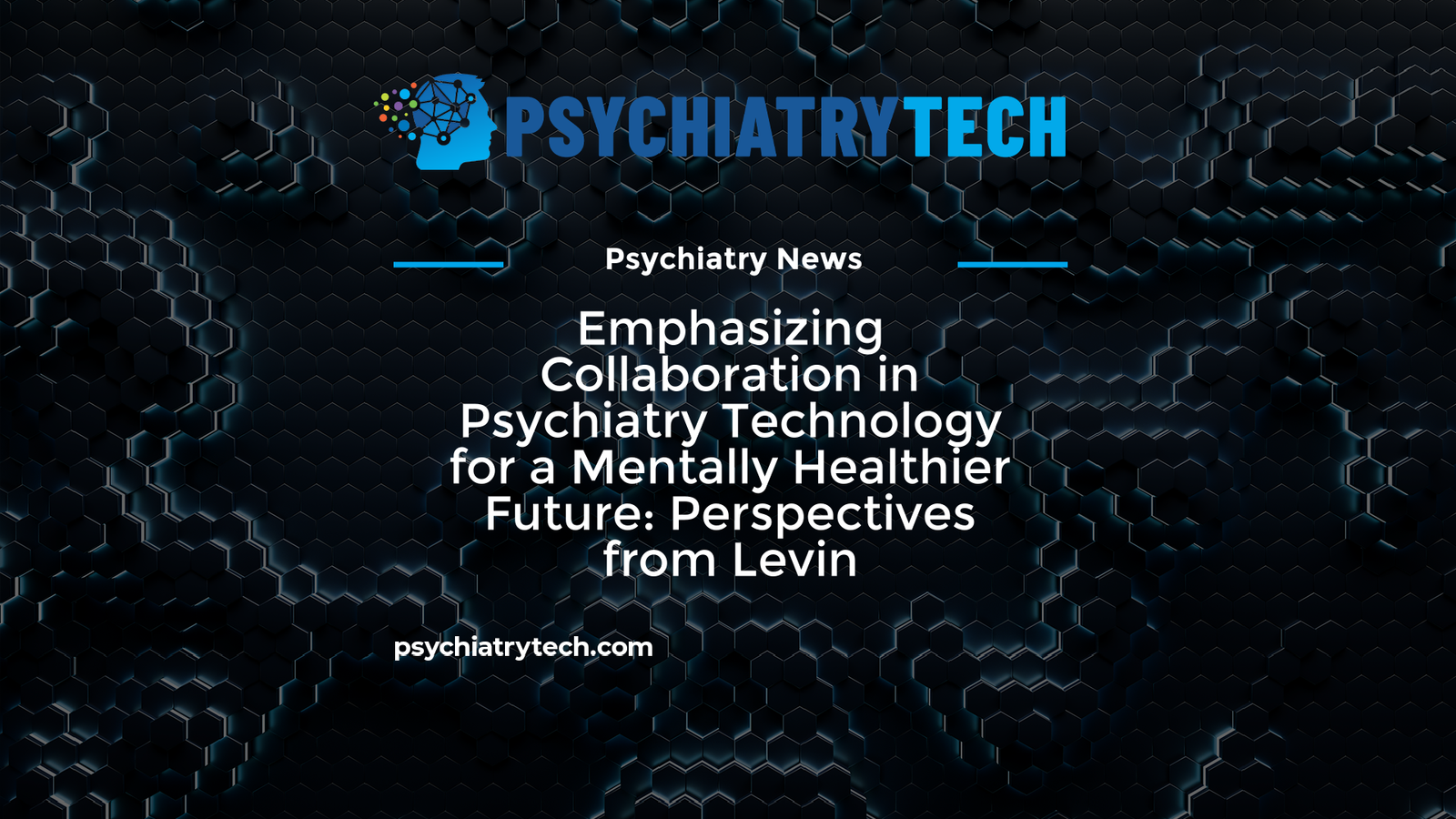Emphasizing Collaboration in Psychiatry Technology for a Mentally Healthier Future: Perspectives from Levin
Mental health disorders remain a significant challenge, with over 20% of adults in the United States experiencing a mental illness at some point in their lives. Advances in technology have led to various solutions to address these challenges and promote better mental health. However, the integration of technology into psychiatric care has not been without challenges. In this article, we will be discussing the importance of collaboration in the field of psychiatry technology and perspectives on the future of mental health care from a leading expert, Dr. Bernard Levin.

Discover The World's MOST COMPREHENSIVE Mental Health Assessment Platform
Efficiently assess your patients for 80+ possible conditions with a single dynamic, intuitive mental health assessment. As low as $12 per patient per year.
The Importance of Collaboration
Dr. Levin, a renowned psychiatrist and director of the National Institute of Mental Health (NIMH), emphasizes the importance of collaboration in the field of psychiatry technology. According to Dr. Levin, collaboration involves a multidisciplinary approach that fosters communication, teamwork, and innovation among healthcare professionals, researchers, patients and technology specialists. He cites this approach as fundamental in the development of meaningful and impactful technology solutions for mental health care.
Technologies Promoting Collaboration in Psychiatry
The need for collaboration is underlined by the numerous advancements in psychiatric technology that have resulted in promising results in the area of mental health disorders treatment. Here are some of such advancements:
- Telepsychiatry: This technology leverages audio, video, and messaging platforms to provide remote mental health care, improving access for patients with geographic and logistical barriers. Telepsychiatry has gained popularity during the COVID-19 pandemic as a means of providing care while social distancing.
- Mood monitoring apps: These apps help patients track their moods and emotions, provide medication reminders and offer access to therapy, allowing them to manage their mental health effectively.
- Artificial Intelligence (AI) tools: AI tools can assist in diagnosing and planning treatment options, predicting potential mental health issues. It has significantly contributed to precision mental health.
The Future of Psychiatry Tech: A Collaborative Outlook
The future of psychiatry technology is bright. Dr. Levin states that many leading companies in the tech industry have shown interest in collaborating with healthcare specialists to develop innovative mental health solutions. Developers must work with psychotherapists, primary care physicians, data scientists, and other healthcare professionals to establish effective diagnosis, treatment plans and processes of integrating psychiatric technology solutions.
The mental health awareness movement is also aiding the growth of psychiatric technology. Dr. Levin believes that as the stigma around mental health decreases, patients are becoming more open to embracing technology in their mental health treatment plans.
Conclusion
Collaboration in psychiatric technology plays a crucial role in promoting mental health awareness, diagnosis, and treatment. The combination of mental health care experts and technology specialists can create new mental health solutions that address unmet needs in the industry. At Psychiatry Tech, we strive to create awareness on the significance of collaboration and innovation in psychiatric medicine. Join the movement and share this message so that we can continue to promote mental wellness for all.
What are your thoughts about the role of technology in psychiatric care? Join the conversation by sharing your opinions on our social media pages and visit our website for more informative psychiatry technology updates.

